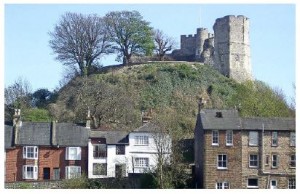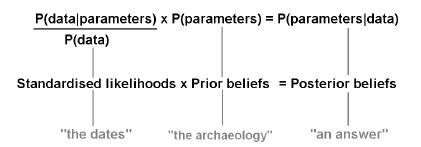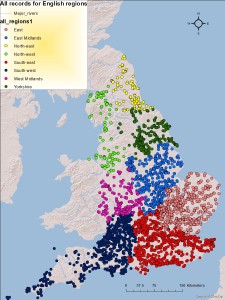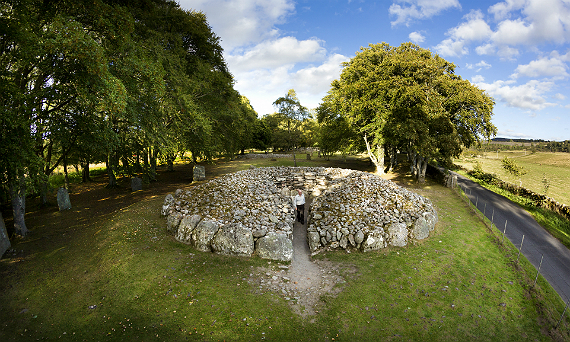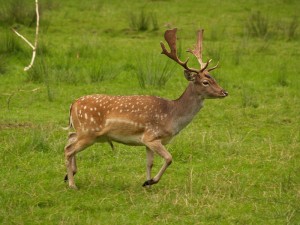This week’s seminar was a very informative presentation on the shell-keeps of the UK. Robert Higham, an Honorary Fellow of the University of Exeter, led us through the details of what makes a shell-keep and the vast array of keep architecture found in the UK. Prof Higham revisited many of the shell-keeps recorded antiquarians and refined the list to those that met all of the architectural criteria, reducing the historiographical list of roughly 120 down to 20 surviving examples. These shell-keeps appear to be a design that is particular to the UK, with the majority being constructed by the ‘wealthiest of castle owners’. There is no evidence for timber precursor structures and the shell-keep is essentially an Anglo-Norman high status structure.
Category Archives: Research Seminars
Research Seminar #16: “Peopling the Past” by Alex Bayliss
Prof. Bayliss (Historic England, University of Stirling) presented an entertaining overview of how the application of Bayesian chronology to archaeological research has the potential to provide specific information and considerably narrow date ranges. She expounded the importance of constraint by using the information already known about a site to provide limits for modelling.
This is because the mathematical model has to incorporate what might seem to be obvious information to us, in order for it to recognise and discount parts of the sample date range that do not fit. For example, putting into the model that a structure’s destruction date must come after it’s start date seems a pointless statement to us, but without this information the model will produce a date range that extends to cover all possibilities.
Research Seminar #15: “Anthropogenic Impact on Columbian and Ecuadorian ecosystems” by Henry Hooghiemstra
It was pollen diagrams galore on Friday when paleo-ecologist Professor Henry Hooghiemstra came to talk to us about Anthropogenic Impact on Columbian and Ecuadorian ecosystems. In a fascinating talk Hooghiemstra took us to many ecological zones of Columbia and Ecuador, from the high Andes to the savannah and tracked the human impact on these landscapes.
Research Seminar #14: “How far removed is the commercial archaeology market from academia?” by Taryn Nixon
Last week we had the absolute pleasure of welcoming Taryn Nixon to speak at our departmental seminar. Taryn is the CEO of Museum of London Archaeology (MOLA), who operate commercially through development-led archaeology. Her talk concerned some of the major work MOLA have been doing in London, how it links with various research agenda and how it might be similar or different from the roles academics play at universities. Alongside their commitments to developers, Taryn was keen to emphasise the role MOLA play in establishing links with the heritage of a place and the local community.
As part of this she presented “3 Days in the Life” of a particular case study: the Bloomberg Place project in Walbrook, Central London. This site was first excavated in 1954 during the post-war development of London when a Roman temple was discovered: London Mithraeum. This temple was dedicated to a mysterious Roman cult from Persia celebrating Mithras and instantly caught national attention with over 400,000 people lining the streets to visit the excavation. At the time only a single archaeologist worked on site alongside the construction workers.
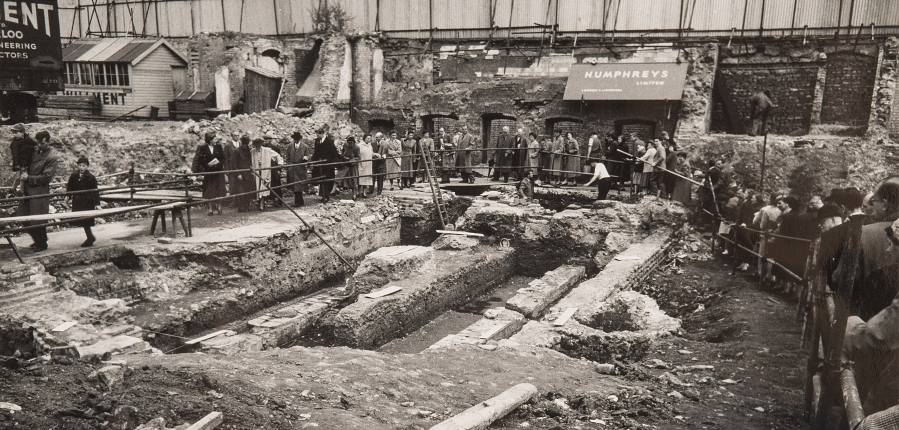
Temple excavation 1954
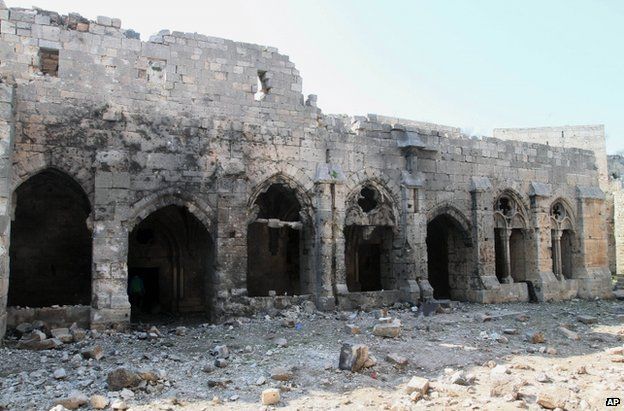
Research Seminar #13: “Looting and Archaeological Destruction in Syria” by Emma Loosley
On Friday the 22nd January we were delighted but apprehensive to welcome Dr. Emma Loosley, Associate Professor in Theology and Religion, back to our department to talk about destruction of monuments in the Middle East. This extremely current and distressing issue was sure to evoke some strong emotions from the audience.
Research Seminar #12: “Characterising the Rural Landscape of Roman Britain” by Neil Holbrook
On Friday 15th January our Departmental Seminar Program kicked off with Neil Holbrook of Cotswold Archaeology talking to us about the fascinating Roman Rural Settlement Project. This project, undertaken in collaboration with the University of Reading and funded by Historic England and the Leverhulme Trust, was conceived partly in response to the almost mechanical excavation, publication and discussion of Roman Rural Settlements, due to the perceived similarity of the sites. The project aimed to highlight the differences in life experience of people living at rural settlements.
Research Seminar Series 2016
The programme for our Research Seminar Series 2016 has been announced! All are welcome to come and listen to our fascinating speakers on a variety of topics. The usual time and place are Fridays, 2pm in LT3 (Laver Building), although please check the programme below for any deviations. Our first seminar of the term starts on the 15th January, and you can follow all the action via summaries on our blog!
Research Seminar #11: “The Use and Reuse of Stone Circles” by Richard Bradley
Richard Bradley came to talk to us before Christmas about the use and reuse of stone circles. In a fascinating presentation he took us through many early Bronze age sites, describing their possible original purpose and showing the archaeological evidence for later use and, in some cases, destruction. Right up to Christian times stone circles were being used as a strategic reference back to local and non-Christian traditions. Bradley also showed that in the modern period new stone circles are being built all the time, and thus the cycle continues.
Research Seminar #10: “5000 Years of Camelid Herding in the Andes” by Dr. Penny Dransart
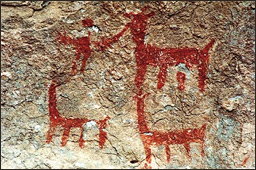
The Rock Art Site of Calacala, Bolivia. Credit: http://www.bradshawfoundation.com/bolivia/calacala.php
This week’s research seminar was presented by Dr. Penny Dransart on the development and continuation of the pastoral care of camelids in the Chilean Andes over the last several thousand years. The high altitudes and steppe regions of these mountains make them largely unsuitable for the cultivation of crops, so nomadic herding is the main subsistence that can be sustained here. Penny’s work explores the long-term continuity of herding practices and the use of pastures to keep camelid herds through exploration of the ethnographic and archaeological records, as well as a broad brush approach to understanding camelids.
Research Seminar #9: “The Fallow Deer, 10kBP to Present” by Dr Naomi Sykes
Naomi Sykes came to talk to us about the work of the Fallow Deer project. In a fascinating presentation she divulged a wealth of information about Dama dama past and present, and how the work of the project will impact, and is indeed already impacting, the future.

